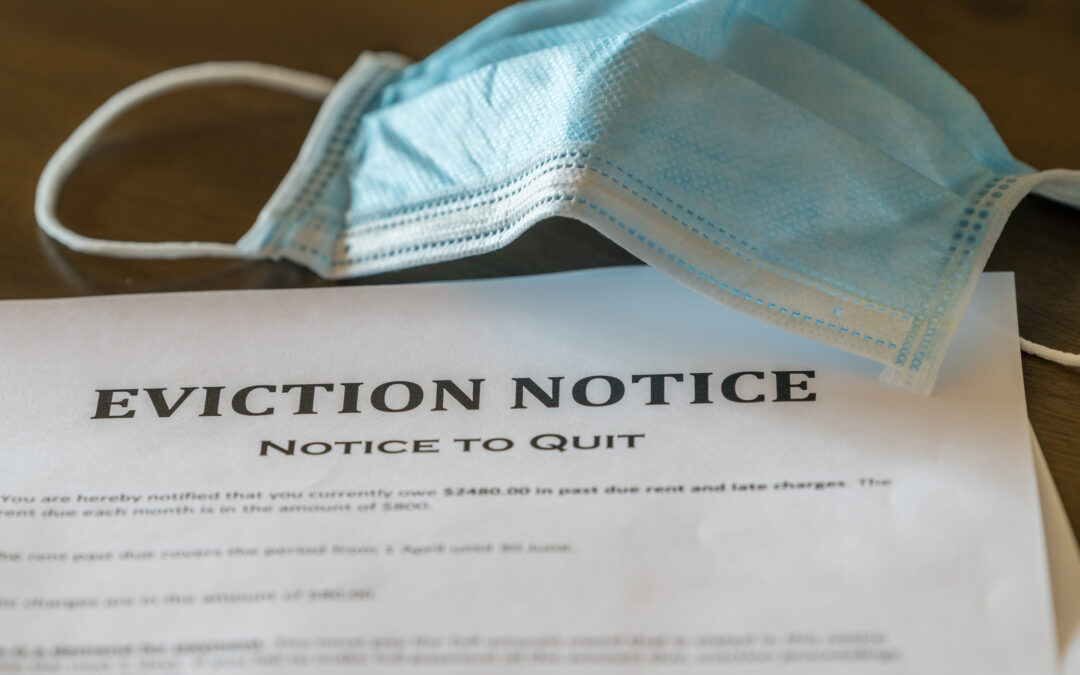Millions of fragile California rental households are facing a frightening reality: the $600 per week unemployment benefits ended, food costs are soaring, jobs are scarce and the rent is due – again.
While thousands of tenants avoided COVID-19-related eviction thanks to the California Judicial Council “freeze” on court actions, that temporary relief is disappearing. For months, tenants impacted by the pandemic were able to make arrangements to either delay or pay partial rent. Courts could not issue a summons, except under very narrow circumstances, or enter default judgments against renters not responding to a summons.
Rent Freeze to End
On August 13, 2020, the council voted to lift the freeze early. Starting September 1, 2020, California landlords can serve tenants with a “Three Day Notice to Pay Rent or Quit” and file paperwork in the Superior Court.
Governor Newsom allowed 150 California cities and counties to create local eviction guidelines however, and then to extend those protections through September 30, 2020 if they choose to do so. So, like seemingly every other pandemic problem, where you live can determine how to legally protect yourself from losing your rental house or apartment.
Keep Lines of Communication Open With Your Landlord
If you are lucky enough to live in an area where local protections are stronger than state-wide rules, you have a little bit of time to prepare. Landlords don’t enjoy evictions – they much prefer receiving rent payments. Now is the moment to make sure your paperwork showing how COVID-19 impacted your ability to pay rent is in order. If possible, keep communication open with your landlord. Sometimes a payment plan might be considered if one is not already in place. Confirm your landlord received prior messages from you regarding payment.
If You Are Served with Eviction papers
If you live in San Francisco, you could receive a 3-day-notice to pay or vacate as early as October 1, 2020. If this happens, you have three options – pay the rent, vacate and lose your deposit and be sued for back rent, or remain in your unit without paying rent. The third option allows your landlord to proceed with eviction after three days.
Tenant attorneys are taking the position that tenancies cannot terminate before November 30, 2020 which is 60 days after the September 30 moratorium ends. Depending what happens in the California Legislature, this date may be extended.
Right now, landlords cannot evict their tenants for nonpayment of rent between April and September 30, under Supervisor Dean Preston’s legislation. It will be treated like consumer debt.
Tenants need to be very specific about what month rent is being paid for. Rent payment should be accompanied by a separate document stating the month for which rent is being paid for (e.g. September 1, 2020).
Avoid Losing Hope
Pursue no-cost legal assistance through public agencies, like the Eviction Defense Collaborative, and document any issues complicating your situation. Did your landlord attempt to change your locks? Has your landlord refused to perform needed repairs over the past six months? Are you being discriminated against or harassed by your landlord? Did you attempt to make a rent payment that was refused? Are you confused about the rules?
If you need advice to avoid eviction, act early. If you are unable to work with your landlord and remain in your home, call a tenant attorney today.
Know your rights. Protect Yourself.


 (415) 533-0735
(415) 533-0735 (415) 843-0496
(415) 843-0496